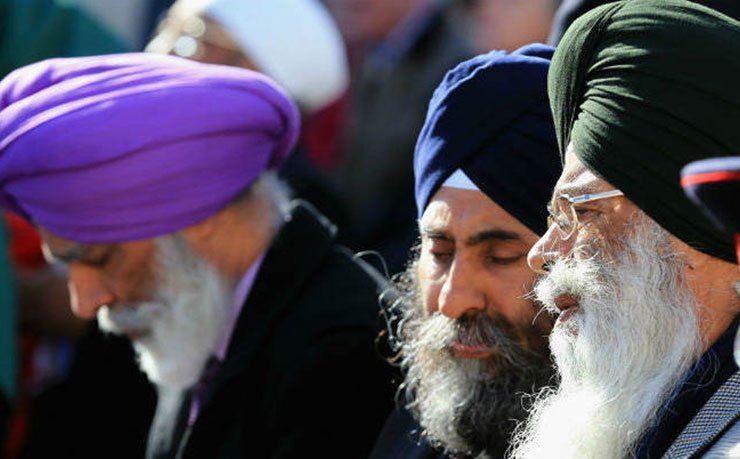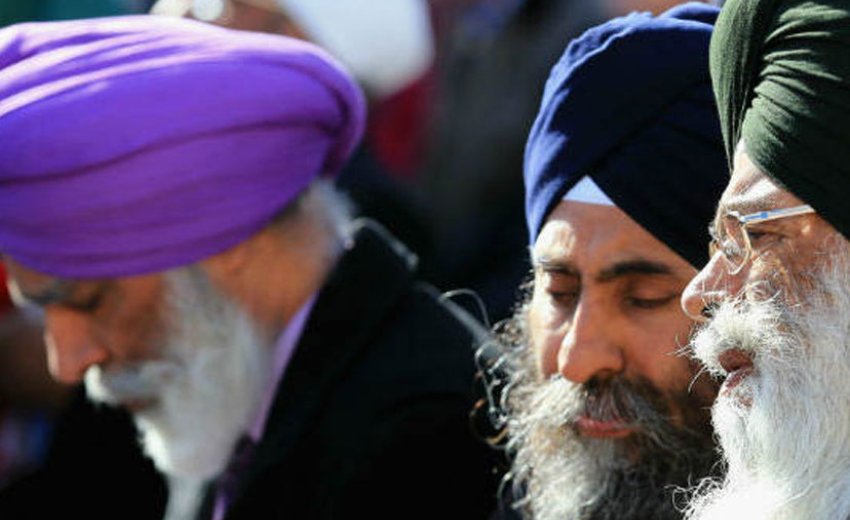
Amrik Singh Bal knows what racism is like first hand, as do many other Sikhs living in a post 9-11 America. On December 26, 2015, he was innocently waiting for a ride to work when men in a pickup truck started harassing him. When he tried to get away from them, they ran him down leaving him bloody, broken, and bruised. Bal is 68, living in California which many would say is a “friendlier place” for Sikhs than large parts of America, but despite many Americans claiming to be Christian, some have missed the main message of love that Christianity also says to stand for.
In just a few short months after 9-11, there were 300 reports of violence and/or discrimination towards Sikh Americans. Currently in the political debates, it seems that Donald Trump (hopeful Republican leader) is encouraging people to become xenophobic and scared of terrorism, which in turn increases discrimination towards Sikhs, as a vastly misunderstood group by many other Americans.
There are somewhere between 200,000 to 500,000 Sikhs who live in America now. Sikhs started arriving later in the 1800’s to escape British colonialism.
Sikh religion teaches that men and women should not cut their hair, and most practicing Sikh men wear a turban and women either cover their hair or also wear a turban. The rest of the American population, not understanding where they come from, views this as either hostile or disrespectful at times, and misunderstanding abounds. They also frequently get mistaken for Muslims, which they find irksome.
Arish Singh is a young comedian and writer from Chicago. Recently he went to a Trump rally, was treated badly, and had his turban referred to as “one of those hats”. Sadly this is how many Americans view turbans: an optional piece of headwear no different than the next piece of cloth sewn together into a cap.
Singh went to the rally because Trump’s comments about Muslims, Mexicans, and more infuriated him. “Although I always identified with Sikhism, I didn’t start wearing a turban until the shooting at Oak Creek, which had an enormous effect on me both personally and politically,” Singh voiced. “It became clear just how important to me it was to stand up for Sikhism and for wearing a turban, a kind of religious expression that should be completely uncontroversial.”
Singh says it is paramount to unite on a front against all types of bigotry.
Recent airport humiliation and degradation by governmental organisations towards Waris Ahluwalia and Jasmeet Singh/”JusReign” (actor/model and comedian, respectively) has been making the news which Sikhs hope will at least teach a little about what sikhi stands for and is about.
“For Sikh American men who wear turbans, humiliation is a prerequisite for air travel,” Arjun Sethi, who is director of law and policy at the Sikh coalition, claims. “The TSA has a blanket policy of pulling aside Sikh travelers, because turbans are considered bulky clothing under TSA rules.”
The worst issue for many Sikh Americans is that many children grow up being bullied at school, sometimes as much as 3 times as much as other kids in their neighbourhoods. For many Sikhs, surviving the next few months until the election is over will be trying and many are actively contemplating leaving the USA.
